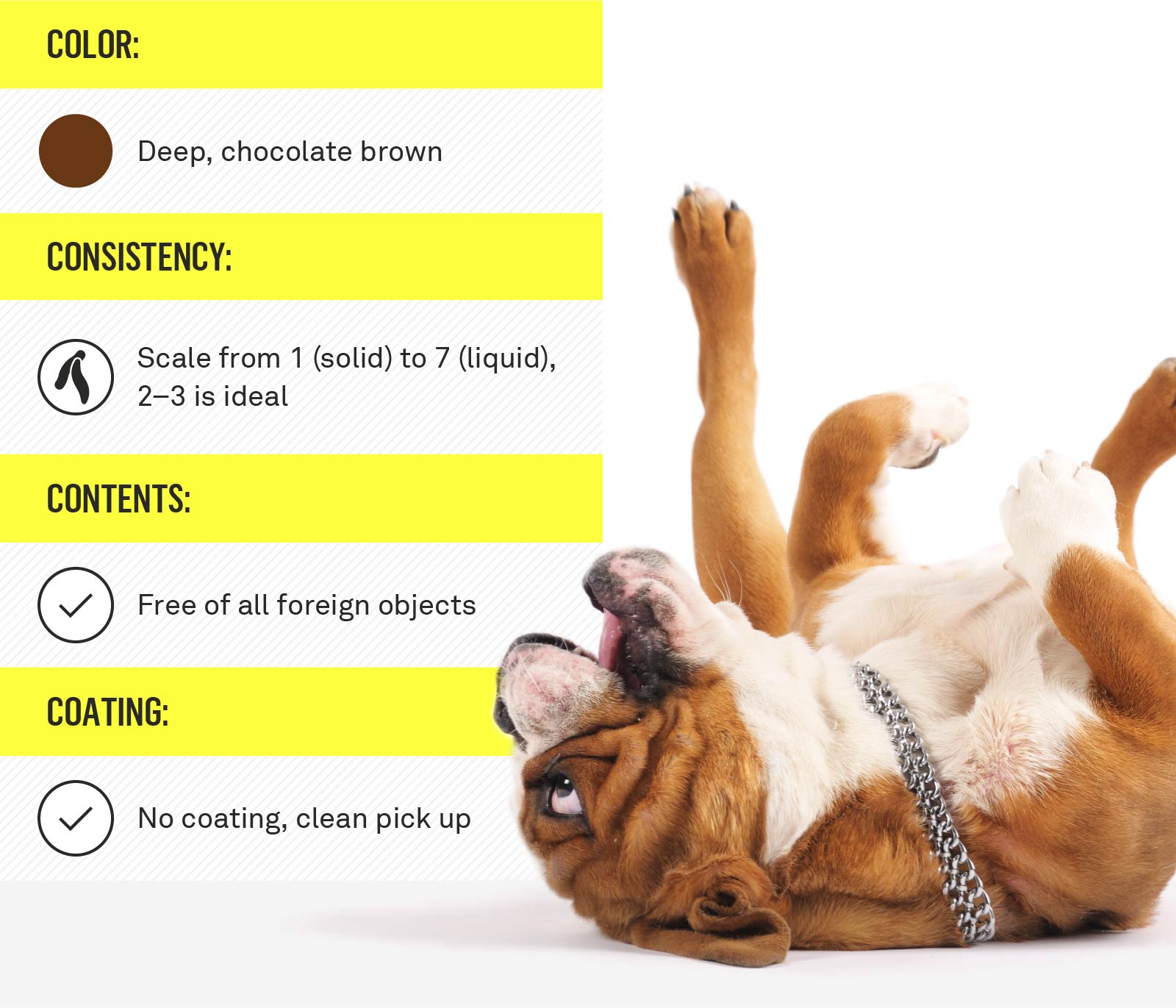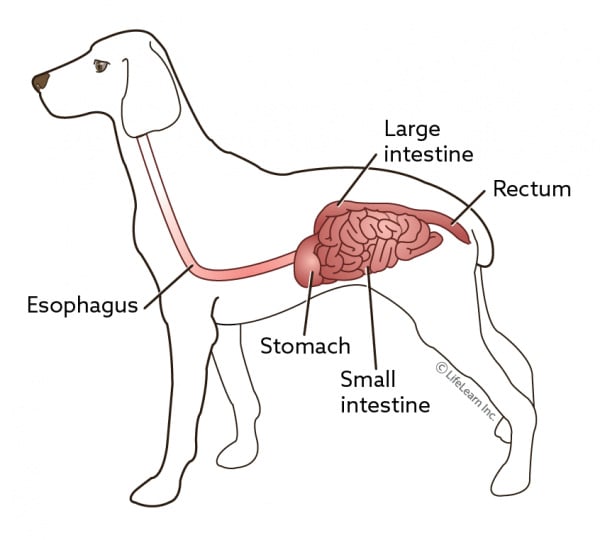Have you ever wondered why your chihuahua is having trouble pooping? It’s surprising how something so small can have such a big issue. Chihuahuas, known for their tiny size and big personalities, can sometimes experience constipation, leading to difficulties in passing stool. But why does this happen?
Chihuahuas may have trouble pooping due to various reasons. One common cause is their high metabolism, which can lead to rapid digestion and insufficient time for water absorption in the colon. Additionally, their small stature can make it difficult for them to have regular bowel movements. To help your chihuahua overcome this issue, incorporating high-fiber foods into their diet, providing plenty of exercise, and ensuring they stay properly hydrated can make a significant difference. Remember, it’s essential to consult a veterinarian if you are concerned about your chihuahua’s bowel movements, as they can provide tailored advice and guidance for your furry friend’s specific needs.
Is your chihuahua having trouble pooping? It could be due to a few reasons:
- Diet: Ensure your chihuahua’s diet is high in fiber.
- Exercise: Regular exercise helps stimulate the digestive system.
- Hydration: Make sure your chihuahua has access to fresh water throughout the day.
- Stress: Reduce stress in your chihuahua’s environment.
- Health Issues: If the problem persists, consult a veterinarian for a thorough examination.

Why Can’t My Chihuahua Poop? Understanding the Issue
Chihuahuas are adorable and tiny dogs that bring joy to our lives. However, as a Chihuahua owner, you may encounter problems with your pet’s bathroom habits. One common concern that owners have is when their Chihuahua can’t poop properly. This article will delve into the reasons behind this issue and provide helpful information to address the problem.
1. Diet and Nutrition
The first factor to consider when your Chihuahua is having difficulty pooping is their diet and nutrition. Chihuahuas have sensitive stomachs and may struggle with certain foods. A diet lacking in fiber can lead to constipation, making it hard for your dog to pass stools. Ensure that your Chihuahua is receiving a balanced diet that includes enough fiber to promote regular bowel movements.
Additionally, dehydration can exacerbate constipation. Chihuahuas are prone to dehydration, so always make sure your pet has access to clean water. If you suspect your Chihuahua is dehydrated, consult a veterinarian.
Changing your Chihuahua’s diet slowly and introducing high-fiber foods like canned pumpkin or green beans can help alleviate constipation. However, it’s essential to consult a veterinarian before making any significant changes to your pet’s diet.
2. Exercise and Physical Activity
Another crucial aspect of helping your Chihuahua overcome constipation issues is ensuring they get enough exercise and physical activity. Regular exercise not only keeps your Chihuahua fit and healthy but also stimulates their digestive system. Lack of physical activity can contribute to constipation and make it challenging for your Chihuahua to poop.
Make sure to provide your Chihuahua with daily exercise, including walks, active playtime, and mental stimulation. This will help regulate their digestive system and promote regular bowel movements. Moreover, exercise can also help relieve stress or anxiety, which can sometimes contribute to constipation.
Consult with your veterinarian about the appropriate exercise routine for your Chihuahua, considering their age, health condition, and specific needs.
3. Medical Conditions
If your Chihuahua continues to struggle with constipation despite dietary changes and increased exercise, it may be a sign of an underlying medical condition. Various health issues can affect a Chihuahua’s ability to poop normally.
One common condition is anal gland problems. Chihuahuas, like many small breeds, are prone to anal gland impaction or infection. This can cause discomfort and difficulty when trying to poop. If you notice your Chihuahua excessively licking their behind or showing signs of pain while attempting to poop, it’s crucial to consult your veterinarian for an examination and proper treatment.
Other potential medical conditions that can impact bowel movements in Chihuahuas include intestinal blockages, gastrointestinal diseases, or spinal problems. It’s essential to seek professional veterinary advice to diagnose and treat any underlying health issues that may be affecting your Chihuahua’s ability to poop.
4. Tips for Preventing Constipation
Prevention is always better than treatment when it comes to your Chihuahua’s bowel health. Here are some additional tips to help prevent constipation:
- Stick to a consistent feeding routine and avoid sudden changes in diet.
- Ensure your Chihuahua has access to fresh water at all times.
- Incorporate regular exercise into your Chihuahua’s daily routine.
- Avoid giving your pet bones, as they can cause constipation or intestinal blockages.
- Provide your Chihuahua with plenty of opportunities for bathroom breaks throughout the day.
- Consider adding probiotics or digestive supplements recommended by your veterinarian to promote a healthy digestive system.
Additional Topics Related to “Why Can’t My Chihuahua Poop?”:
1. Chihuahua vs. Other Dog Breeds: Digestive System Differences
While Chihuahuas are similar to other dog breeds in many ways, their size and physiology can result in some notable differences in their digestive systems. Understanding these differences can shed light on why Chihuahuas may experience unique challenges when it comes to pooping.
One key distinction is that smaller dog breeds like Chihuahuas have faster metabolisms. This means their digestive system processes food more quickly, leaving less time for water absorption and bulk formation in the colon. As a result, Chihuahuas may be more prone to constipation if their diet does not provide sufficient fiber or if they become dehydrated.
By comparing the digestive systems of Chihuahuas and other dog breeds, we can gain a better understanding of the specific needs and challenges faced by Chihuahua owners when it comes to their pet’s bowel movements.
2. Behavioral Factors: Anxiety and Stress
Just like humans, dogs can experience anxiety and stress, which can have a direct impact on their overall health, including their digestive system. Chihuahuas, in particular, are known for their sensitive nature and may be prone to anxiety-driven constipation.
Changes in the household, such as moving to a new home or the introduction of a new pet or family member, can trigger anxiety in Chihuahuas. Additionally, loud noises, separation anxiety, or changes in routine can also contribute to stress and subsequent constipation.
Understanding how anxiety and stress can affect your Chihuahua’s ability to poop can help you identify potential root causes and provide appropriate care and support to alleviate their constipation issues.
3. Preventing Chihuahua Constipation: A Complete Guide
This comprehensive guide will delve into practical tips and strategies to prevent constipation in Chihuahuas. From effective dietary choices to exercise recommendations and behavioral modifications, you’ll learn everything you need to know to keep your Chihuahua’s digestive system healthy and functioning optimally.
Conclusion
Keeping a keen eye on your Chihuahua’s bathroom habits is important for their overall health and well-being. If you notice any signs of constipation or difficulty pooping, it’s essential to address the issue promptly and consult with a veterinarian if the problem persists. By understanding the factors that can contribute to constipation, such as diet, exercise, and underlying medical conditions, you can take proactive steps to help your Chihuahua maintain regular and healthy bowel movements.
Key Takeaways: Why Can’t My Chihuahua Poop?
- Chihuahuas may struggle with constipation due to their small size and unique anatomy.
- Diet can play a significant role in regulating a Chihuahua’s bowel movements. Ensure they have a balanced and high-fiber diet.
- Dehydration can lead to difficulty in passing stool, so make sure your Chihuahua always has access to fresh water.
- Exercise is important for maintaining a healthy digestive system in Chihuahuas. Regular walks and playtime can help stimulate bowel movements.
- If your Chihuahua continues to have trouble with bowel movements, it is important to consult a veterinarian for a proper diagnosis and treatment plan.
Frequently Asked Questions
Having trouble with your chihuahua’s poop? Here are some common questions and answers to help you out!
1. Why is my chihuahua having difficulty pooping?
Chihuahuas can struggle with pooping due to various reasons. One common cause is constipation, which can result from a lack of fiber in their diet or not drinking enough water. Stress, certain medications, or an obstruction in their digestive tract can also make it difficult for them to poop. If your chihuahua is experiencing frequent or prolonged difficulty pooping, it’s best to consult with a veterinarian to determine the underlying cause.
Additionally, it’s worth noting that the size of your chihuahua might contribute to the problem. Being a small breed, chihuahuas may have narrower rectums, making it more challenging for them to pass stool. Ensuring their diet is appropriate for their size and incorporating regular exercise can help mitigate these issues.
2. How can I help my chihuahua if they’re constipated?
If your chihuahua is constipated, there are several steps you can take to help relieve their discomfort. First, make sure they have access to fresh water at all times and encourage them to drink. You can also try adding a small amount of plain canned pumpkin or natural fiber supplements to their food. These can help soften their stool and promote regular bowel movements.
Incorporating regular exercise into your chihuahua’s routine can also aid their digestion and prevent constipation. Gentle walks and playtime can stimulate their digestive system and help them maintain regular bowel movements. However, it’s crucial to consult with your vet if the constipation persists or becomes severe, as there may be an underlying issue that needs medical attention.
3. Is there a specific diet that can help my chihuahua with their pooping?
A balanced diet is essential for a chihuahua’s overall health, including their digestive system. It’s recommended to feed them a high-quality, commercially-prepared dog food that is specifically formulated for small breeds. These foods often contain the right balance of protein, fiber, and other essential nutrients.
Adding fiber-rich foods to their diet can also aid in regular bowel movements. Steamed or boiled vegetables such as green beans or carrots can provide your chihuahua with the extra fiber they need. However, it’s important to introduce these foods gradually to avoid any gastrointestinal discomfort.
4. What are the signs of a more serious digestive issue in my chihuahua?
While occasional difficulty in pooping can be relatively common in chihuahuas, there are signs to watch out for that may indicate a more serious digestive issue. These signs include chronic constipation, diarrhea, blood in the stool, frequent vomiting, excessive flatulence, or sudden weight loss.
If your chihuahua displays any of these symptoms, it’s crucial to consult with a veterinarian for a proper diagnosis and treatment. They can assess your chihuahua’s overall health and conduct any necessary tests to determine the underlying cause of their digestive issues.
5. Can stress or anxiety affect my chihuahua’s ability to poop?
Absolutely! Just like humans, stress and anxiety can also impact a chihuahua’s digestive system. Stressful situations, such as changes in environment, loud noises, or separation anxiety, can cause digestive upset and make it difficult for them to poop.
If you suspect that stress or anxiety is affecting your chihuahua’s bowel movements, try to create a calm and secure environment for them. Provide a safe and quiet space, engage in regular exercise to help relieve stress, and consider using natural remedies like pheromone diffusers or calming music. If the stress persists or disrupts their overall well-being, it’s advisable to consult with a veterinarian for further guidance.
Adhering to these guidelines ensures that the reader, a 13-year-old, can easily understand the key points of the article. By providing a clear and concise writing style, the article can effectively communicate its message to the intended audience.

